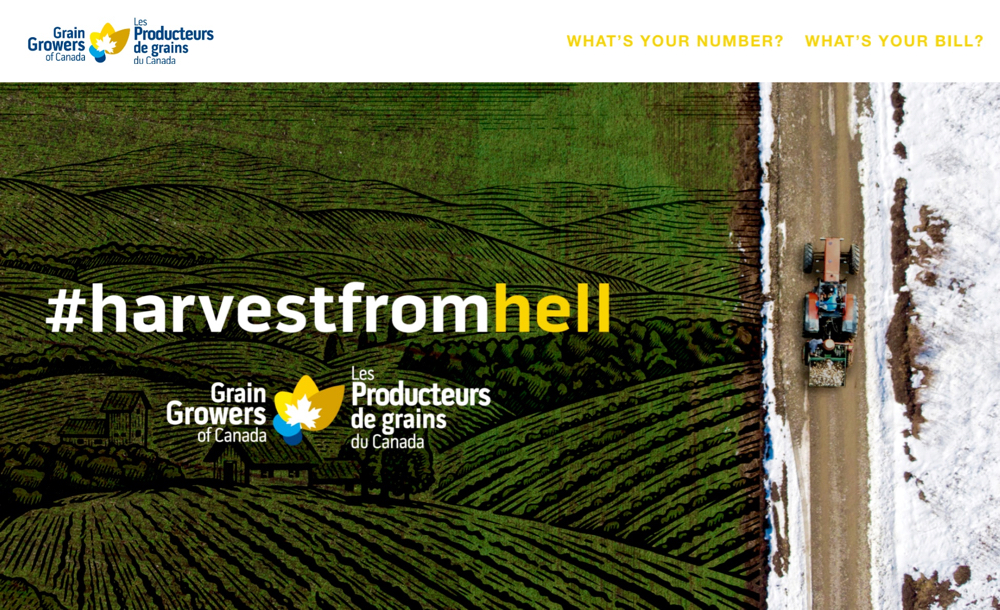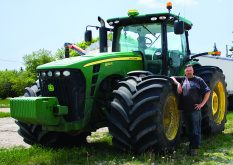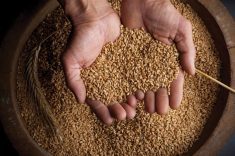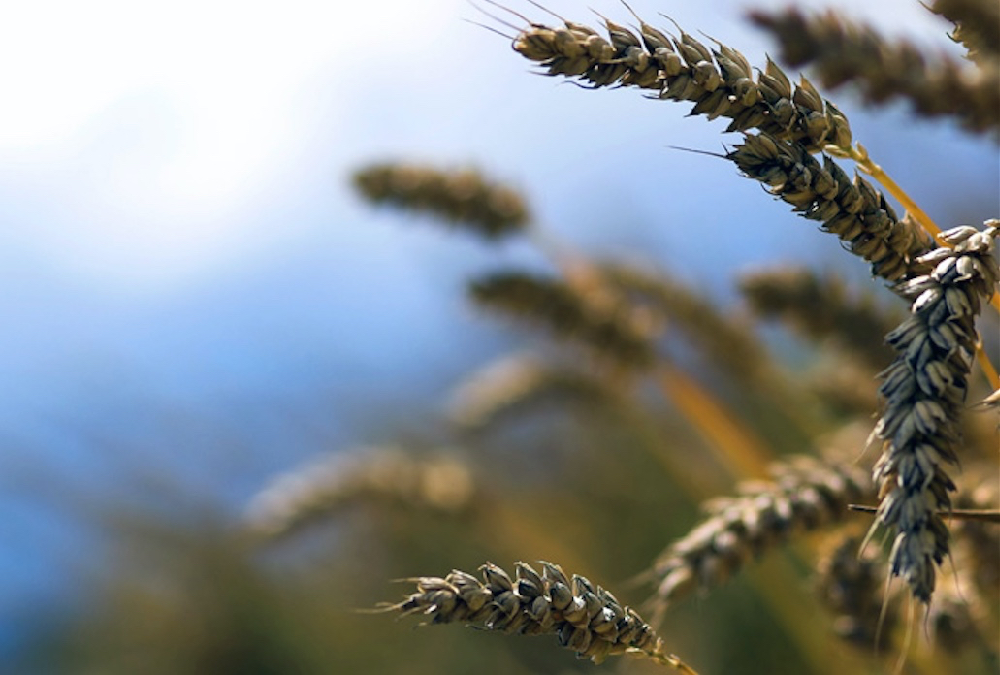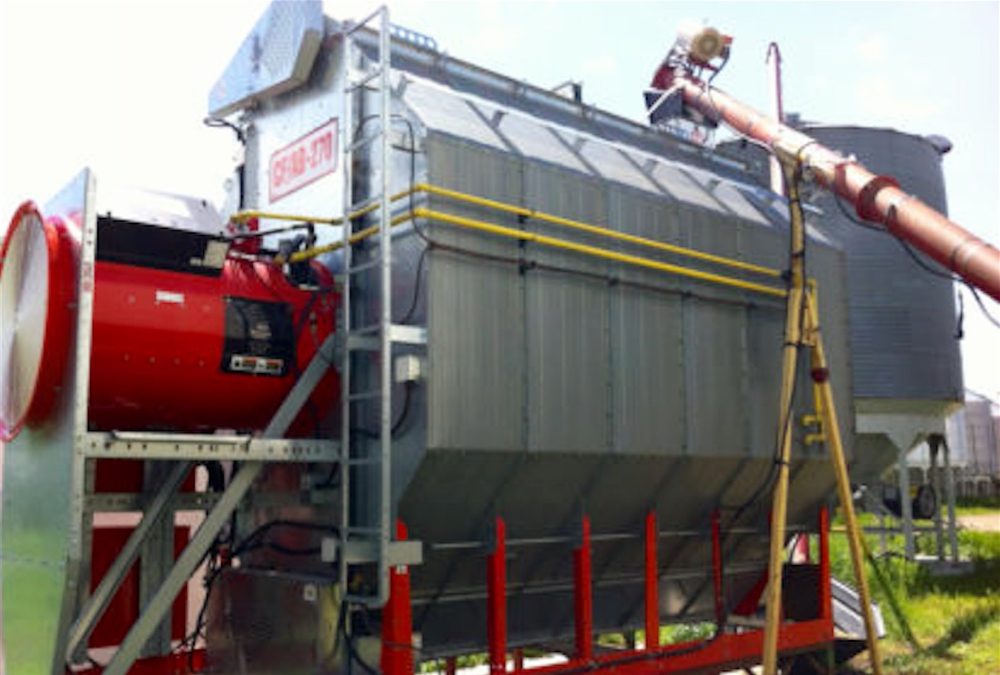Grain Growers of Canada has launched a campaign to “help” federal Ag Minister Marie-Claude Bibeau build a case for eliminating the carbon tax on grain drying.
“Minister Bibeau has stated that she needs more data on how much farmers had to pay in carbon taxes to dry their grain, before she will consider compensation or an exemption for next year. We want to help her,” states www.harvestfromhell.ca — a new website created by the farm group.
“Please submit what the carbon tax portion of your natural gas or propane bill was for the 2019 harvest.”
The levy is “an unfair tax” on Prairie farmers, said Jeff Nielsen, the group’s president.

“Last year, it was literally a harvest from hell,” said the Olds-area producer. “The mounting pressure on producers was amplified.”
Farmers are good stewards of their land who aren’t compensated for sequestering carbon through practices such as no till, he said. And since the price for grains and oilseeds is set in the global marketplace, the carbon tax comes right off the bottom lines of producers.
“We can’t pass that cost on to anybody else,” said Nielsen. “That’s the frustrating part.”
Alberta no longer has a provincial carbon tax, but the federal carbon tax was implemented on Jan. 1. It currently stands at $20 per tonne of carbon emissions and is set to rise each year until hitting $50 per tonne in 2022.
Read Also

Farming Smarter receives financial boost from Alberta government for potato research
Farming Smarter near Lethbridge got a boost to its research equipment, thanks to the Alberta government’s increase in funding for research associations.
The ‘Harvest from Hell’ website cites calculations by Saskatchewan’s main farm group, which has estimated the carbon tax will cost a 5,000-acre grain farm $8,000 to $10,000.
That figure includes the extra cost for grain drying (51 cents per acre) but also the per-acre effect of the carbon tax on shipping grain by rail from that province (88 cents), trucking grain to an elevator 40 miles away (16 cents) as well as heating and electricity costs on a farm (15 cents and six cents per acre respectively).
In total, that adds up to $8,000 to $10,000 on a 5,000-acre farm drying 60 to 80 per cent of its harvest, says the Agricultural Producers Association of Saskatchewan.
While Saskatchewan and Manitoba farm organizations have calculated the impact of the carbon tax on grain drying costs, Alberta has not done this yet, said Nielsen.
“We don’t have any numbers for what is happening in Alberta,” he said.
At www.harvestfromhell.ca, producers are invited to show the carbon tax portion of the propane or natural gas bills. The data will be compiled and kept anonymous but producers are also encouraged to post comments on the website.
“We have been drying grain day and night since October,” wrote one producer, who estimated the carbon levy has added $10,000 to $15,000 on that farm’s propane bill. “We are tired, we are frustrated and we are broke.”
Farmers are also being invited to share videos and stories, either on the website or on social media using the hashtag #harvestfromhell.
Nielsen said producers should also reach out to their local MPs to talk about the carbon tax.
“It doesn’t hurt to give them a call,” he said. “They want to hear from producers in their ridings. I can say that I represent a lot of farmers, but it’s better coming from that riding.”
Last fall’s CN rail strike and the blockades of rail lines and ports by groups opposed to the Coastal GasLink gas line on Wet’suwet’en territory in B.C. have only added to the financial woes that Prairie farmers are facing, he added.
“It really hurt farmers,” said Nielsen. “Yes, you can get bridge financing, but there’s significant acreage across Western Canada that has to get the crop off first before they can get the next crop in.”
The website is also a way to let Canadians know what farmers are going through, he added.
“Talk about the stress. We are able to reach out a lot better than we ever have before.”
– With staff files


